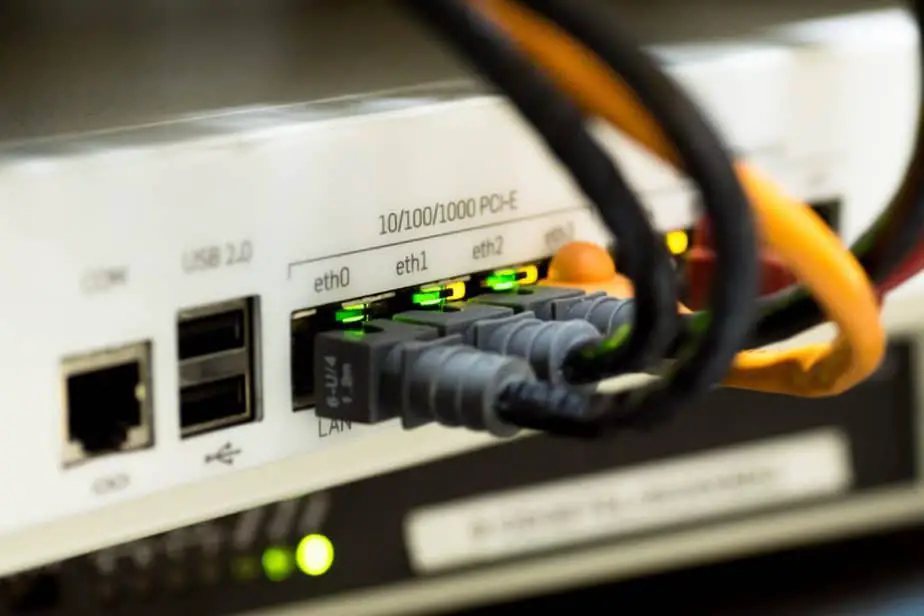There is no denial in technology stating that one shouldn’t have two or more internet connections, either from different ISPs or from the same one.Multiple Internet Connections In One House,Each one has its ISP cable, modem, router, home network wiring, and/or wireless (WiFi) SSID and, preferably, WiFi channel. ISPs, on the other hand, may have their restrictions and may need to be persuaded to do so for a residence.

Multiple Connections And ISPs In A House
Having many connections provides redundancy if one of them fails. You’d have to give a mechanism to switch to a working ISP if the one you’re currently connected to goes down.Having multiple internet connections does not imply that you can combine them to create a faster connection. It will let you divide your house or company’s internet devices into many internal networks, each with its own router, so they don’t compete for the same bandwidth. You can still have a single home network, but you’ll need special, more expensive routing equipment that can route individual computer devices to separate ISPs. In most homes in the United States, you can obtain internet from both your cable company and your phone company at the same time.
How Do They Work?
These will be sent by copper or fibre coax. There is normally only one independent drop for each “phone” and “cable” therefore you can’t have more than two distinct landline-based providers at the same place. You might even obtain internet from a variety of mobile providers at the same time, depending on who has good service in your area. Finally, in some regions, you may be able to obtain internet via a wireless ISP (typically no more than one unless you reside in a large city), giving you a third option to consider when bringing internet into your home. You can terminate these on separate access modems/routers/access points, or you can learn how to buy and configure a multi-wan router. Some of these will allow you to bond or load-balance, or you can use a Linux PC with multiple ethernet NICs to provide bonding and load-balancing.
Devices For Multiple Connections
- Using a multi-Wan router is a good idea. To enhance bandwidth, they will split traffic between the two ISPs and separate traffic by local device, outside destination, or protocol. You can also just have one as a backup.
- Keep in mind that some sites, such as banks and secure sites, do not like round robins. You’d have to add rules for those sites in that instance. This isn’t going to happen very often.
- The Cisco RV402 is perhaps the most straightforward and cost-effective option. It’s not the best, but it’s the best bargain.
- If you want more freedom, Mikrotik can handle it, but it’s not a straightforward setup.
- Ubiquiti can do the same. In a residence, opt for the UBNT security gateway ($105). You can also use their lite, 3 port, and 8 port edge routers.
- Velocloud is one of the higher-end options. It aggregates traffic in their data centres, acts as a single connection, resolves the secure site issue, increases packet quality, and transforms two bad connections into one fantastic one. It is a fantastic service, but it’s not cheap. It costs around $900 per year to get started.
Benefits of Multiple Connections
Here are some of the benefits of having more than one:
- You might be subleasing a portion of your home and wish to keep the two wifi networks distinct.
- You frequently have significant visitors and want to ensure that they have plenty of bandwidth regardless of what else is going on in your network.
- You have an adolescent who enjoys video games and wants more bandwidth to play them without being irritated by bottlenecks.
- You run a mission-critical business from home and require a reliable failover (internet access backup) alternative in the event of a failure.
- You’re messing about with networking and don’t want to wake up your family if you make a mistake.
- You’ve got security cameras and want to keep them distinct from the rest of your network (for security reasons)
In the residence, you can have multiple WiFi networks. This is how the WiFi protocol is meant to handle it.The access point (router) to which each network device is linked will communicate with it. The WiFi networks will use the same frequencies as one another.Because several users and networks must share the same radio frequencies, performance may suffer. However, you may improve the networks’ throughput by optimizing them.
Conclusion
You can have as many providers as you want, whether they’re willing and able to link you to services by cable, wireless, satellite, fibre, or carriers. Your router must be able to determine which connection to use for each connection within your network.
Frequently Asked Questions
1.How many internet connections can a house have?
Answer: A house can have as many internet connections as they want but is limited to 225 devices.
2.Is it possible to combine two internet connections?
Answer: Yes, it is possible to combine two internet connections.

